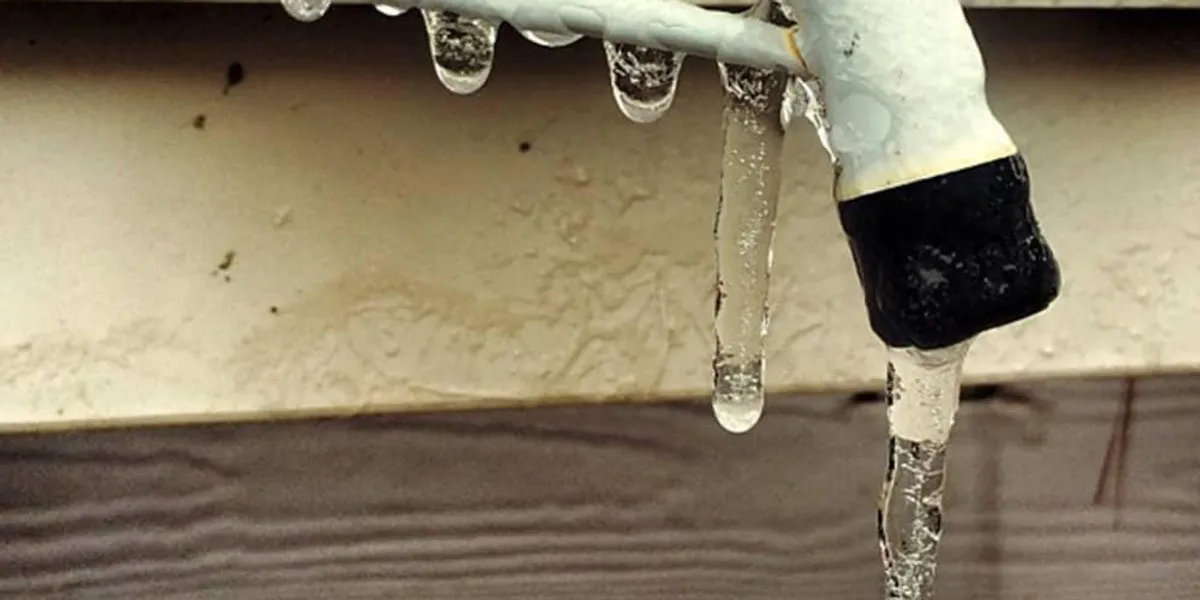Protecting Your Pipes from Freezing: Best Tips
Protecting Your Pipes from Freezing: Best Tips
Blog Article
We have stumbled upon the article relating to 6 Ways to Prevent Frozen Pipes listed below on the net and thought it made good sense to write about it with you in this article.

Cold weather can wreak havoc on your pipes, particularly by freezing pipelines. Right here's how to stop it from taking place and what to do if it does.
Intro
As temperatures drop, the risk of frozen pipes increases, possibly causing expensive repair services and water damage. Recognizing exactly how to prevent icy pipes is essential for house owners in cold environments.
Avoidance Tips
Protecting prone pipes
Cover pipes in insulation sleeves or make use of warm tape to shield them from freezing temperatures. Focus on pipes in unheated or external areas of the home.
Heating strategies
Maintain interior areas effectively warmed, specifically areas with plumbing. Open up cupboard doors to allow cozy air to flow around pipelines under sinks.
Exactly how to identify icy pipes
Seek decreased water flow from faucets, uncommon odors or sounds from pipelines, and visible frost on revealed pipes.
Long-Term Solutions
Structural changes
Take into consideration rerouting pipes away from exterior walls or unheated areas. Add extra insulation to attic rooms, cellars, and crawl spaces.
Updating insulation
Purchase top notch insulation for pipes, attic rooms, and wall surfaces. Appropriate insulation helps keep constant temperatures and minimizes the danger of frozen pipes.
Shielding Exterior Plumbing
Yard pipes and outside taps
Disconnect and drain pipes yard hoses prior to wintertime. Install frost-proof faucets or cover outdoor taps with protected caps.
Recognizing Frozen Pipelines
What creates pipes to ice up?
Pipes freeze when subjected to temperatures below 32 ° F (0 ° C) for prolonged durations. As water inside the pipes freezes, it broadens, taxing the pipeline walls and potentially triggering them to rupture.
Threats and problems
Icy pipes can cause water supply disruptions, home damages, and costly repair work. Burst pipes can flood homes and cause substantial architectural damages.
Indicators of Frozen Piping
Identifying icy pipes early can avoid them from rupturing.
What to Do If Your Pipes Freeze
Immediate actions to take
If you believe frozen pipes, maintain faucets open up to relieve stress as the ice melts. Make use of a hairdryer or towels taken in hot water to thaw pipelines slowly.
Verdict
Preventing frozen pipes needs proactive steps and quick actions. By understanding the reasons, indications, and safety nets, homeowners can protect their pipes throughout winter.
Helpful Tips to Prevent Frozen Pipes this Winter
UNDERSTANDING THE BASICS: WHY PIPES FREEZE AND WHY IT’S A PROBLEM
Water freezing inside pipes is common during the winter months, but understanding why pipes freeze, and the potential problems it can cause is crucial in preventing such incidents. This section will delve into the basics of why pipes freeze and the associated problems that may arise.
THE SCIENCE BEHIND FROZEN PIPES
When water reaches freezing temperatures, it undergoes a physical transformation and solidifies into ice. This expansion of water as it freezes is the primary reason pipes can burst. As the water inside the pipe freezes, it expands, creating immense pressure on the walls. If the pressure becomes too great, the pipe can crack or rupture, leading to leaks and water damage.
FACTORS THAT CONTRIBUTE TO PIPE FREEZING
Low Temperatures: Extremely cold weather, especially below freezing, increases the risk of pipes freezing. Uninsulated or Poorly Insulated Pipes: Pipes located in unheated areas, such as basements, crawl spaces, or attics, are more prone to freezing. Insufficient insulation or lack of insulation altogether exacerbates the problem. Exterior Wall Exposure: Pipes running along exterior walls are susceptible to freezing as they encounter colder temperatures outside. Lack of Heating or Temperature Regulation: Inadequate heating or inconsistent temperature control in your home can contribute to frozen pipes. PROBLEMS CAUSED BY FROZEN PIPES
- Pipe Bursting: As mentioned earlier, the expansion of water as it freezes can cause pipes to burst, resulting in significant water damage.
- Water Damage: When pipes burst, it can lead to flooding and water damage to your property, including walls, ceilings, flooring, and personal belongings.
- Structural Damage: Prolonged exposure to water from burst pipes can compromise the structural integrity of your home, leading to costly repairs.
- Mold and Mildew Growth: Excess moisture from water damage can create a favorable environment for mold and mildew growth, posing health risks to occupants.
- Disrupted Water Supply: Frozen pipes can also result in a complete or partial loss of water supply until the issue is resolved.
WHY CERTAIN PIPES ARE MORE PRONE TO FREEZING
- Location: Pipes located in unheated or poorly insulated areas, such as basements, crawl spaces, attics, or exterior walls, are at higher risk of freezing.
- Exterior Pipes: Outdoor pipes, such as those used for irrigation or exposed plumbing, are particularly vulnerable to freezing as they are directly exposed to the elements.
- Supply Lines: Pipes that carry water from the main water supply into your home, including the main water line, are critical to protect as freezing in these lines can affect your entire plumbing system.
- Underground Pipes: Pipes buried underground, such as those connected to sprinkler systems or outdoor faucets, can be susceptible to freezing if not properly insulated.
https://busybusy.com/blog/helpful-tips-to-prevent-frozen-pipes-this-winter/

We hope you enjoyed our excerpt about How To Avoid Freezing Pipes. Thanks a lot for finding the time to read our piece of content. So long as you liked our blog posting if you please make sure you remember to share it. We treasure reading our article about Prevent Frozen Pipes .
Article Report this page